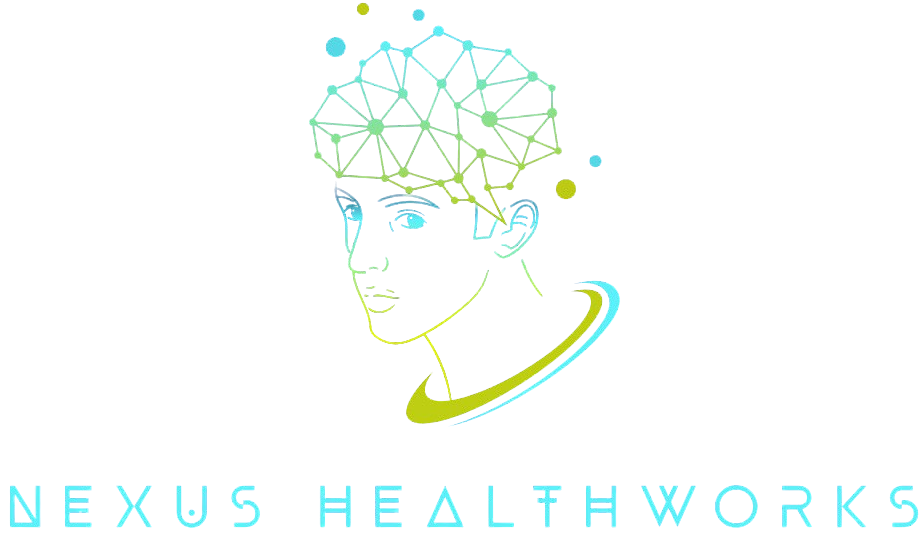Bipolar disorders are complex mental health conditions characterized by extreme mood swings, ranging from manic or hypomanic highs to depressive lows. These episodes can last for days, weeks, or even months, significantly impacting daily life, relationships, and overall well-being. Bipolar disorders include Bipolar I, Bipolar II, and cyclothymic disorder, each with unique symptoms and patterns.
At Nexus Healthworks NP in Psychiatry P.C., we provide specialized care for children aged six and older, adolescents, and adults with bipolar disorders. Our approach combines psychotherapy, medication management, and holistic support to help patients achieve stability and lead fulfilling lives.
Symptoms of Bipolar Disorders
Bipolar disorders present a variety of symptoms that differ between manic, hypomanic, and depressive episodes. Common signs include:
Symptoms of Manic or Hypomanic Episodes:
- Excessive energy or restlessness.
- Decreased need for sleep without feeling tired.
- Inflated self-esteem or grandiosity.
- Racing thoughts or rapid speech.
- Impulsivity, such as reckless spending or risky behavior.
- Increased goal-directed activity or productivity.
Symptoms of Depressive Episodes:
- Persistent sadness or hopelessness.
- Fatigue or low energy.
- Difficulty concentrating or indecisiveness.
- Loss of interest in activities once enjoyed.
- Changes in appetite or weight.
- Sleep disturbances, such as insomnia or oversleeping.
- Thoughts of self-harm or suicide.
Recognizing these symptoms early can lead to timely intervention and better outcomes.
Addressing Bipolar Disorders with Professional Care
Bipolar disorders can disrupt every aspect of an individual’s life if left untreated. Professional care is essential because:
- Untreated mood episodes can escalate, leading to severe consequences such as financial problems, strained relationships, or job loss.
- Bipolar disorders increase the risk of co-occurring conditions, including anxiety disorders, substance abuse, and physical health problems.
- The unpredictability of mood swings can impair decision-making, creating challenges in both personal and professional environments.
- Early intervention helps reduce the severity and frequency of episodes, improving long-term outcomes.
- Comprehensive treatment equips individuals with tools to manage their condition and maintain stability.
- Professional care fosters understanding and empowerment, enabling individuals to regain control over their lives.
How We Treat Bipolar Disorders
At Nexus Healthworks NP in Psychiatry P.C., we offer a personalized approach to treating bipolar disorders. Our evidence-based methods aim to stabilize moods, prevent relapse, and improve overall quality of life.
Steps in the Treatment Process
- Comprehensive Evaluation and Diagnosis: Treatment begins with a detailed assessment to identify the type and severity of bipolar disorder and any co-occurring conditions.
- Development of a Tailored Treatment Plan: Each patient receives a customized care plan that may include psychotherapy, medication, and lifestyle recommendations.
- Psychotherapy for Emotional and Behavioral Support: Techniques such as cognitive-behavioral therapy (CBT) or interpersonal therapy help patients identify triggers, manage stress, and develop healthy coping mechanisms.
- Medication Management: Mood stabilizers, antipsychotics, or antidepressants may be prescribed to regulate mood swings and prevent the recurrence of episodes.
- Lifestyle and Stress Management: Incorporating regular exercise, healthy nutrition, and sleep hygiene into daily routines can significantly enhance treatment outcomes.
- Ongoing Monitoring and Adjustments: Regular follow-ups ensure that treatment plans remain effective and adaptable to the patient’s progress and changing needs.
Strategies for Long-Term Stability
Preventing relapse and managing bipolar disorders effectively requires a proactive approach. Key strategies include:
- Adhering to Treatment Plans: Consistency with therapy and medication helps maintain stability and prevent mood episodes.
- Recognizing Triggers: Identifying and avoiding stressors that may lead to manic or depressive episodes is crucial.
- Maintaining a Structured Routine: Regular sleep, exercise, and healthy meals promote overall mental well-being.
- Engaging in Therapy: Continued participation in psychotherapy strengthens coping skills and emotional resilience.
- Building a Support Network: Family, friends, and support groups provide encouragement and understanding during challenging times.
- Tracking Mood Changes: Keeping a journal of mood patterns helps identify early warning signs and facilitates timely intervention.
Positive Outcomes with Professional Care
With proper treatment and support, individuals with bipolar disorders can achieve stability and lead fulfilling lives. Patients who actively engage in their care often experience a significant reduction in the frequency and severity of mood episodes, allowing for greater emotional balance. Improved relationships with loved ones become possible as communication and understanding are strengthened.
Many find an enhanced ability to manage personal and professional responsibilities, fostering a sense of accomplishment and independence. Treatment also builds greater emotional resilience and confidence, enabling individuals to navigate challenges with renewed strength. With a renewed motivation to pursue goals and hobbies, patients often rediscover joy and fulfillment in their daily lives. Effective treatment empowers individuals to manage their condition and embrace a brighter, more hopeful future.
Frequently Asked Questions
What causes bipolar disorders?
Bipolar disorders result from a combination of genetic, biological, and environmental factors. Stressful life events can also trigger episodes.
Can children develop bipolar disorders?
Yes, bipolar disorders can occur in children. Early diagnosis and intervention are crucial for effective management.
Are bipolar disorders curable?
While bipolar disorders are chronic, symptoms can be managed effectively with ongoing treatment and support, allowing individuals to lead fulfilling lives.
Do all patients with bipolar disorders require medication?
Medication is often a key component of treatment, but therapy and lifestyle changes also play an essential role in managing the condition.
How long does treatment for bipolar disorders last?
The duration of treatment varies, but many patients benefit from long-term care to maintain stability and prevent relapse.
Take the First Step Toward Stability
Living with bipolar disorder can be overwhelming, but effective treatment is available. At Nexus Healthworks NP in Psychiatry P.C., we provide compassionate, evidence-based care for individuals of all ages.
If you or a loved one is struggling with bipolar symptoms, don’t wait to seek help. Contact Nexus Healthworks NP in Psychiatry P.C. today to learn how to create a personalized treatment plan for lasting stability and emotional wellness. Together, we can navigate the path to a brighter future.




